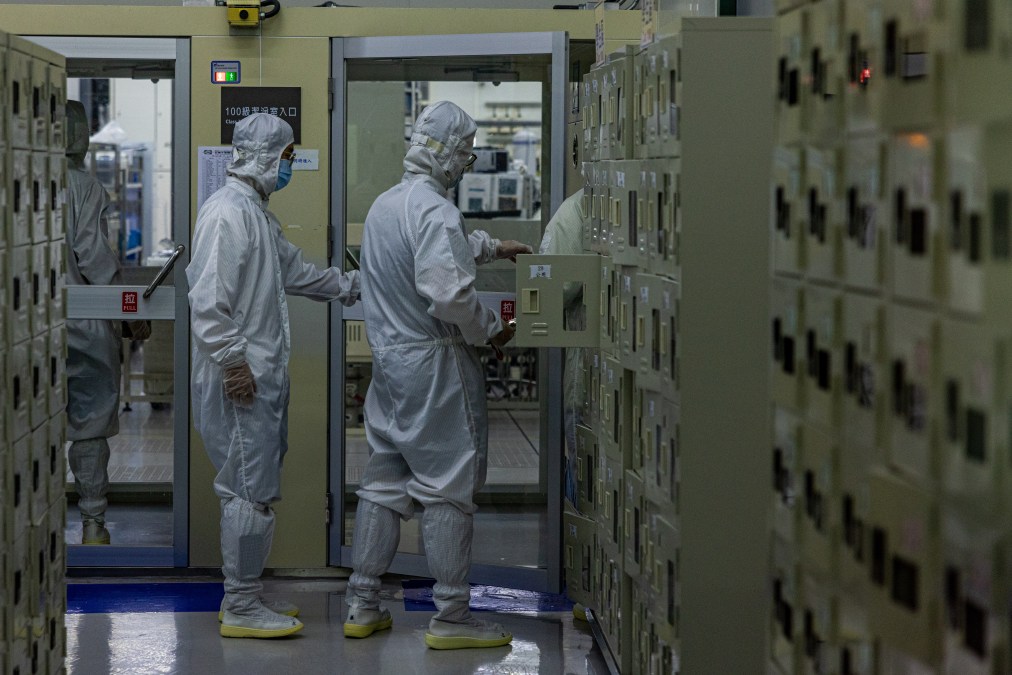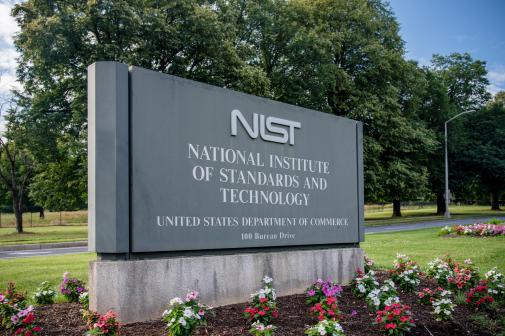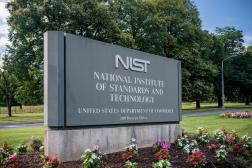NIST signs new research agreement for photonic chips

The National Institute of Standards and Technology (NIST) announced Tuesday a partnership with semiconductor manufacturer AIM Photonics that will give developers a critical new tool for designing faster chips that are key to laser-guided missiles, medical sensors and other advanced technologies.
This newly improved designs for photonic chips will result in chip speeds of up to 110 gigahertz (GHz), which represents a more than four-fold increase from the 25 GHz speed at which most photonic chips currently operate.
The new chips, called integrated photonic circuits, will use both optical and electrical signals to transmit information faster and are key components in fiber-optic networks and high-performance computing facilities.
“This effort will leverage NIST’s expertise in chip measurements, calibration and integrated device modeling,” said Under Secretary of Commerce for Standards and Technology and NIST Director Laurie Locascio. “This shows how government and industry can work together to drive innovation and restore U.S. global leadership in semiconductor manufacturing,” Locascio said in a statement.
The new partnership aligns with the CHIPS and Science Act that President Joe Biden signed into law earlier this year, authorizing new policies and billions in funding to advance research and development and help fortify American technology manufacturing and supply chains particularly related to semiconductor chips.
AIM Photonics is one of nine manufacturing innovation institutes established and managed by the Department of Defense to participate in the development of advanced silicon photonics as a critical technology for the U.S. ‘s defense. The company is a public-private partnership that accelerates the commercialization of new technologies for manufacturing photonic chips.
The New York-based institute provides small and medium-sized businesses and academic and government researchers access to experts and fabrication facilities during all phases of the photonics development cycle, from design to fabrication and packaging.
As part of the new collaboration, NIST will design electrical “calibration structures” that can be used to measure and test the electronic performance of the chips. An updated chip process design kit with the calibration structures should be available to users in approximately one year, NIST said.
NIST earlier this year also created a new open-source chips partnership with Google that is expected to create chips that are hundreds of times cheaper for researchers and manufacturers. As part of the recent agreement, NIST will create up to 40 different circuit designs for the chips, and the initial production costs as well as the first production run will be paid for by Google.






